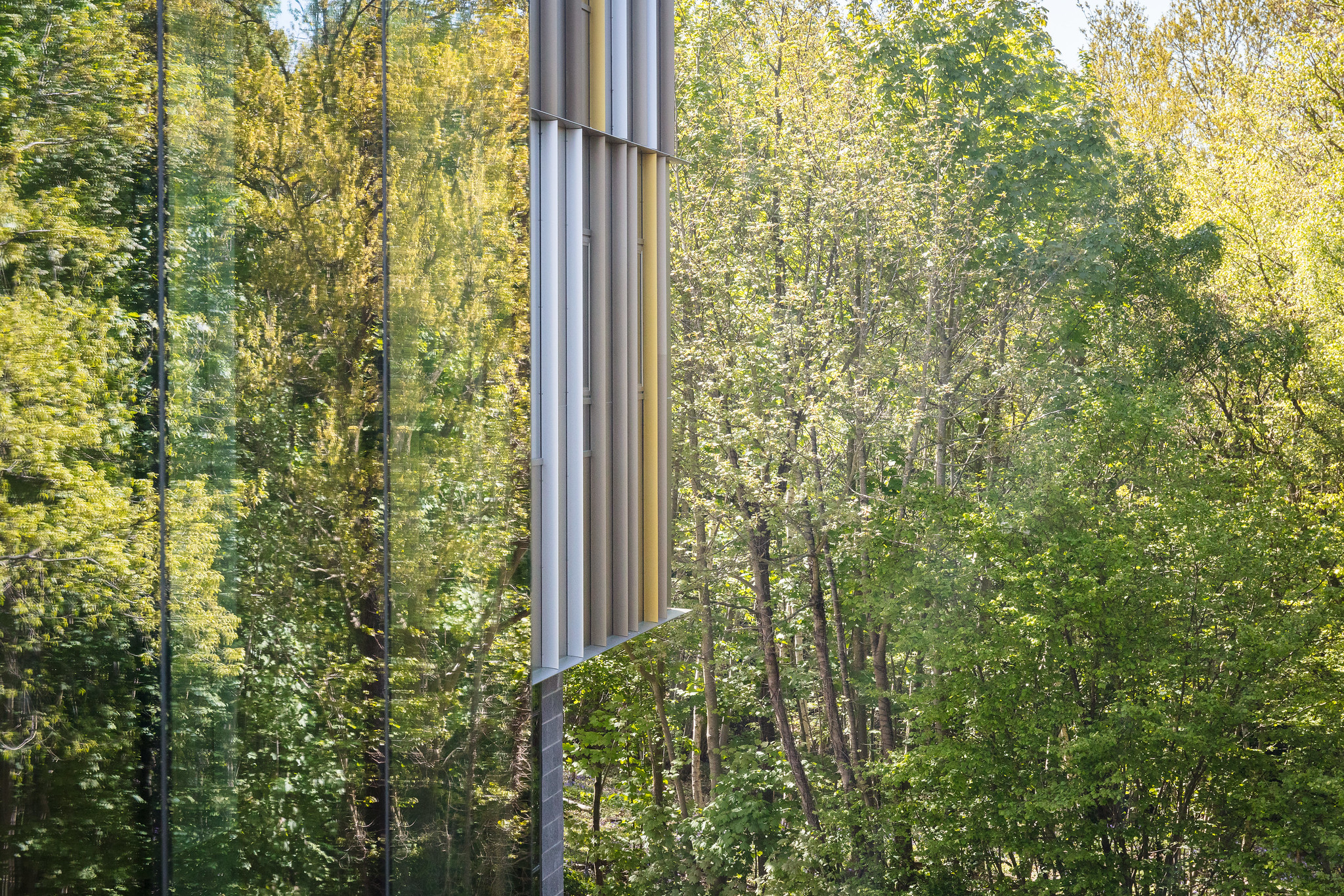Understanding the potential for nature to inspire ideas was the topic of the first Business Start-Up Journey Ideas Hack boot camp.
Using the Canterbury campus as a living lab, students went into the ancient woodland of Brotherhood Wood, near to the Sibson building, to explore how nature can inspire solutions to problems in the human world, using this problem solving as the basis for starting to develop business ideas.
The boot camp began with an overview from the University’s Sustainability Coordinator, Emily Mason, on the biodiversity crisis facing the planet. She explained how careful management of the University’s natural capital was trying to counter it.
Then, using the woods as their inspiration, students were set the task of developing an idea which would either tackle the issue of improving mental health or biodiversity. Ideas included a woodland adoption programme and classrooms based in the woods to promote a closer connection to nature.
In the afternoon, students took part in a further interactive workshop in the Sibson building, generating ideas based on an understanding of the United Nations Sustainable Development Goals and looking at the subject of biomimicry.
Biomimicry uses the solutions which animals, plants, and microbes have found to help solve problems in the human world.
They were led through a rapid idea generation session by ASPIRE’s Innovator in Residence, Jo Pullen, and ASPIRE Project Officer, Rebecca Smith. The boot camp on Saturday 24 October followed a successful launch event with a keynote speech by entrepreneur, Mick Jackson, who founded of the multi-million-pound global company, Wildhearts.
Mick talked about the purpose of ‘business for good’ and the importance of finding your ‘why’.
The Business Start-Up Journey programme is a mix of interactive workshops, mainly online in Teams, real-life boot camps and one-to-one support. Students are guided through the process of starting a business, from finding, developing and testing an idea to creating financial and marketing plans and pitching for investment.
The programme, which is philanthropically supported, ends with a pitching competition where student entrepreneurs can win £1000 to help start their business.
For more information contact ASPIRE@kent.ac.uk


